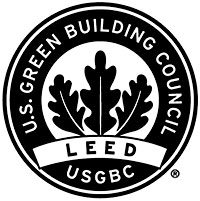Stricter rules and regulations, as well a wider political and social awareness on climate change and the need to protect the ozone layer, have brought into focus new alternatives for refrigerating systems (such as the use of CO2). There is no doubt on the positive environmental effects combining natural coolants (like CO2 and NH3) can have, and their contribution to ecological security.
Thanks to our use of CO2 refrigerating systems to reduce the environmental impact, our Company and products have received the Carbon Footprint certification. Moreover, our facilities are internationally deemed sustainable thanks to our LEED (Leadership in Energy & Environmental Design) credentials.

